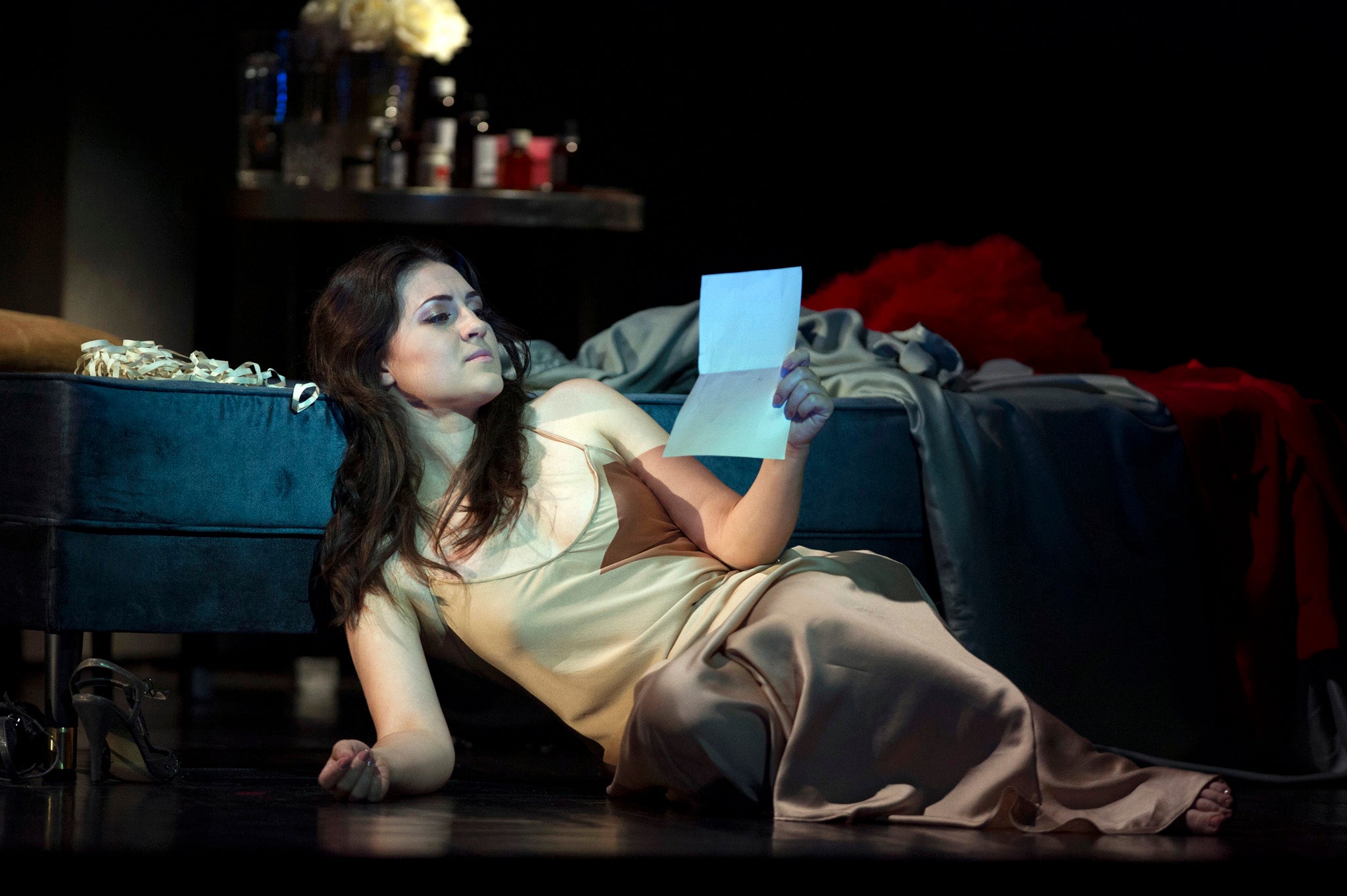La traviata, Glyndebourne, review: Fresh and thrillingly unfamiliar
A Traviata that glances to the past while stepping resolutely into opera’s emotional and dramatic future

The temptation to make a loud statement in this, the first new production of Verdi’s La traviata at Glyndebourne in over 25 years, must have been enormous. But director Tom Cairns resists it with such intelligence and quiet skill that in refusing to make the definitive Traviata-for-our-times he may well have done just that.
The image of the dying woman, stretched out decoratively in her final throes, is synonymous with the 19th-century imagination of La traviata. Rather than look away from this uncomfortable, unfashionable episode, Cairns’ production takes the image as its idée fixe.
Violetta’s death haunts the action, prefacing each act in a tableau that mirrors Verdi’s music, painting his heroine’s death in the breathy strings of the Act I Prelude – the story’s ending written before it has even begun. It’s an oddly liberating framework for the tragedy, shattering chronology and reinventing a final, conclusive death as something rather more mutable, unstable.
Cairns’ delicate reinventions are helped by Hildegard Bechtler’s designs. Combining brutalism and belle époque, she creates an allusive no-place and no-time in which stylish contemporary crowds vie with nostalgic country idylls. Nothing jars or obtrudes into the emotional flow of the narrative, and large-scale sets with plenty of vertical height give stature to a tale that could easily get too domestic in Glyndebourne’s small theatre.
But no amount of style or concept will set a Traviata alight if the cast is wrong, and it’s here that Glyndebourne’s new production comes into its own. Russian soprano Venera Gimadieva is a beguiling and utterly believable Violetta, laughing in giddy cascades of quavers in “Sempre libera” before growing into poised maturity and big legatos for her confrontation with Germont – a singular and striking company debut.
Gimadieva’s youth and comparative inexperience (she is currently a company member at the Bolshoi but has big European Violettas and Gildas ahead in the calendar) find an innocence here that’s far from the brittle, hardened heroine we’ve seen from the likes of Netrebko. Only Ermonela Jaho has come close in recent memory to Gimadieva’s spontaneous warmth, and she has a vocal ease and facility that’s all her own. Gimadieva also has that rarest of instincts that sees her risk virtuosity and power for the drama of the moment, willing to lose herself in orchestral textures if that’s what it takes to make the scene work.
Playing opposite this extraordinary performance is American tenor Michael Fabiano. If his Alfredo doesn’t quite find the same vocal charisma as his Duke in ENO’s 2009 Rigoletto, it is still urgently and beautifully sung. Was there just a hint of vocal discomfort exposed in the quieter moments? Perhaps, but this is a tenor with all the notes and bags of stage presence to go with them. Only Tassis Christoyannis’s Germont disappoints – rigid and impassive, belonging to another (and poorer) era of opera.
Mark Elder coaxes the London Philharmonic Orchestra into fragile pianissimos and delicately unfolding phrases. His Verdi, like Cairns’, is exploratory and questioning, never forcing a conclusion or overworking his material. The combination is fresh and thrillingly unfamiliar, a Traviata that glances to the past while stepping resolutely into opera’s emotional and dramatic future.
Subscribe to Independent Premium to bookmark this article
Want to bookmark your favourite articles and stories to read or reference later? Start your Independent Premium subscription today.

Join our commenting forum
Join thought-provoking conversations, follow other Independent readers and see their replies